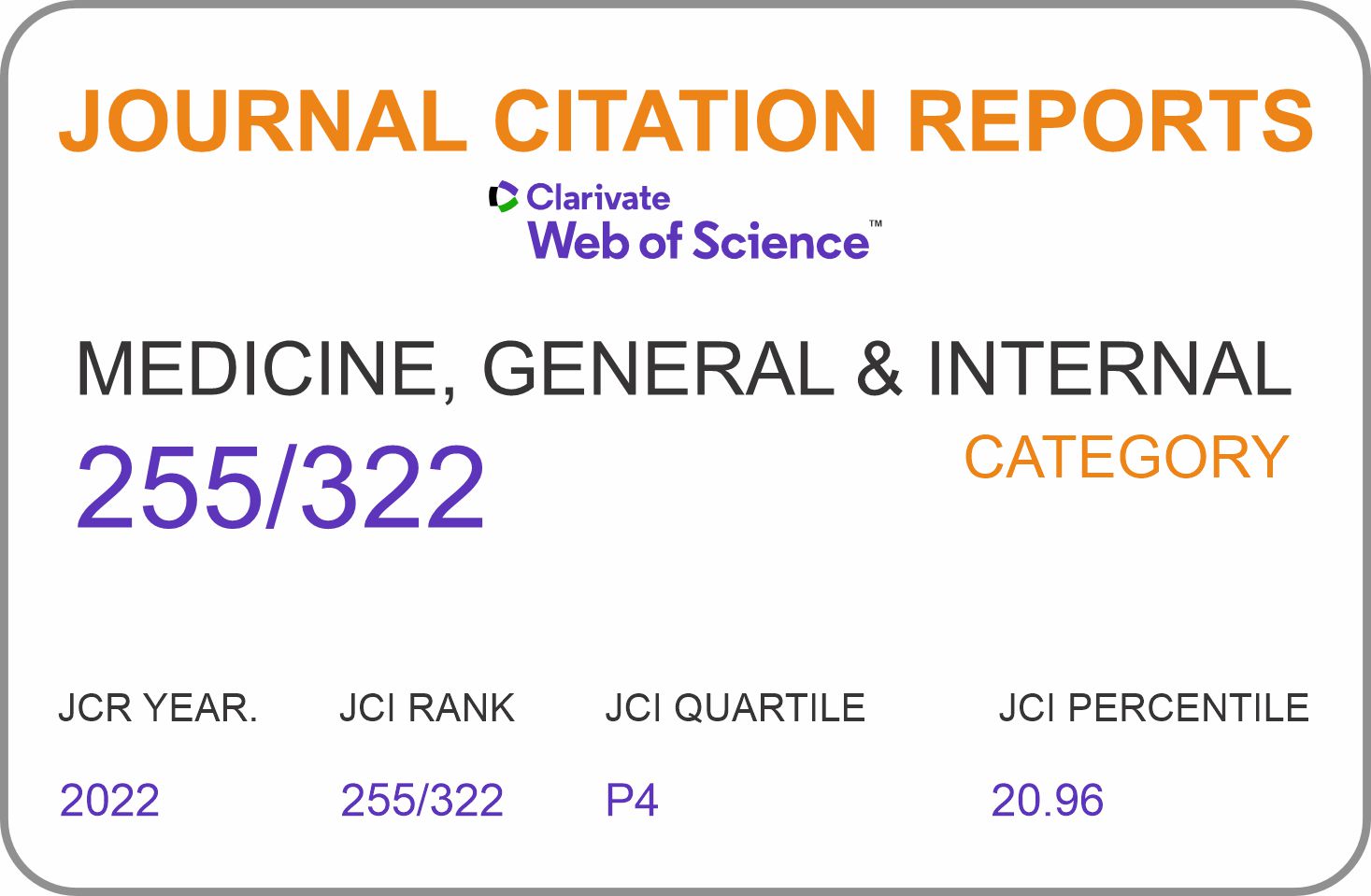[Effect of invitation to colonoscopy screening on Risks of Colorectal Cancer and Related Death (the NordICC study): Critical reading:]
DOI:
https://doi.org/10.35434/rcmhnaaa.2024.171.2107Keywords:
Colonoscopy, Colorectal Neoplasms, Mass ScreeningAbstract
Presentation: The NordICC study aimed to evaluate the long-term effects, with a 10-year follow-up, of inviting individuals aged 55 to 64 years to undergo a single colonoscopy screening for colorectal cancer (CC) compared to those who were not invited and did not undergo screening. Study findings: The group that received the colonoscopy screening invitation had lower risk of CC in comparison to the group that did not undergo screening.
Critical commentary: The study's eligibility criteria closely resembled real-life scenarios. However, the inclusion of participants with CC risk factors and the potential differential effects in this subgroup remain unclear. The invitation for a single colonoscopy screening did not result in clinically important benefits in terms of CC risk, CC mortality, and all-cause mortality. On the other hand, complications associated with the screening procedure were infrequent or negligible. It is important to note a high risk of bias in the blinding-related domains.
Downloads
Metrics
References
Bretthauer M, Løberg M, Wieszczy P, Kalager M, Emilsson L, Garborg K, et al. Effect of Colonoscopy Screening on Risks of Colorectal Cancer and Related Death. N Engl J Med. 2022;387(17):1547–56. DOI: 10.1056/NEJMoa2208375
Zwarenstein M, Treweek S, Gagnier JJ, Altman DG, Tunis S, Haynes B, et al. Improving the reporting of pragmatic trials: an extension of the CONSORT statement. BMJ. 2008;337:a2390. DOI: 10.1136/bmj.a2390
Rothwell PM. Treating individuals 2. Subgroup analysis in randomised controlled trials: importance, indications, and interpretation. Lancet Lond Engl. 2005;365(9454):176–86. DOI: 10.1016/S0140-6736(05)17709-5
Witte LPW, Tikkinen KAO, Guyatt GH, Malde S. Evidence-based urology: importance of relative vs absolute effect. Eur Urol Focus. 2021;7(6):1226–9. DOI: 10.1016/j.euf.2021.09.022
Jodal HC, Helsingen LM, Anderson JC, Lytvyn L, Vandvik PO, Emilsson L. Colorectal cancer screening with faecal testing, sigmoidoscopy or colonoscopy: a systematic review and network meta-analysis. BMJ Open. 2019;9(10):e032773. DOI: 10.1136/bmjopen-2019-032773
Piñeros M, Laversanne M, Barrios E, Cancela M de C, Vries E de, Pardo C, et al. An updated profile of the cancer burden, patterns and trends in Latin America and the Caribbean. Lancet Reg Health – America. Elsevier; 2022;13. DOI: 10.1016/j.lana.2022.100294
Gunnarson M, Kapeller A, Zeiler K. Ethico-Political Aspects of Conceptualizing Screening: The Case of Dementia. Health Care Anal. 2021;29(4):343–59. DOI: 10.1007/s10728-021-00431-3
Lund M, Trads M, Njor SH, Erichsen R, Andersen B. Quality indicators for screening colonoscopy and colonoscopist performance and the subsequent risk of interval colorectal cancer: a systematic review. JBI Database Syst Rev Implement Rep. 2019;17(11):2265–300. DOI: 10.11124/JBISRIR-2017-003927
Magill N, Knight R, McCrone P, Ismail K, Landau S. A scoping review of the problems and solutions associated with contamination in trials of complex interventions in mental health. BMC Med Res Methodol. 2019;19(1):4. DOI: 10.1186/s12874-018-0646-z
Brodersen J, Voss T, Martiny F, Siersma V, Barratt A, Heleno B. Overdiagnosis of lung cancer with low-dose computed tomography screening: meta-analysis of the randomised clinical trials. Breathe Sheff Engl. 2020;16(1):200013. DOI: 10.1183/20734735.0013-2020
Higgins JPT, Altman DG, Gotzsche PC, Juni P, Moher D, Oxman AD, et al. The Cochrane Collaboration’s tool for assessing risk of bias in randomised trials. BMJ. 2011;343(oct18 2):d5928–d5928. DOI: 10.1136/bmj.d5928
Heijnsdijk EAM, Csanádi M, Gini A, ten Haaf K, Bendes R, Anttila A, et al. All‐cause mortality versus cancer‐specific mortality as outcome in cancer screening trials: A review and modeling study. Cancer Med. 2019;8(13):6127–38. DOI: 10.1002/cam4.2476
McGlothlin AE, Lewis RJ. Minimal clinically important difference: defining what really matters to patients. JAMA. 2014;312(13):1342–3. DOI: 10.1136/ebmental-2020-300164
Helsingen LM, Zeng L, Siemieniuk RA, Lytvyn L, Vandvik PO, Agoritsas T, et al. Establishing thresholds for important benefits considering the harms of screening interventions. BMJ Open. 2020;10(12):e037854. DOI: 10.1136/bmjopen-2020-037854
Huffstetler AN, Fraiman J, Brownlee S, Stoto MA, Lin KW. An Estimate of Severe Harms Due to Screening Colonoscopy: A Systematic Review. J Am Board Fam Med JABFM. 2023;36(3):493–500. DOI: 10.3122/jabfm.2022.220320R2
Fundytus A, Wells JC, Sharma S, Hopman WM, Del Paggio JC, Gyawali B, et al. Industry Funding of Oncology Randomised Controlled Trials: Implications for Design, Results and Interpretation. Clin Oncol. 2022;34(1):28–35. DOI: 10.1016/j.clon.2021.08.003
Lin JS, Perdue LA, Henrikson NB, Bean SI, Blasi PR. Screening for Colorectal Cancer: Updated Evidence Report and Systematic Review for the US Preventive Services Task Force. JAMA. 2021;325(19):1978–98. DOI: 10.1001/jama.2021.4417
Guyatt GH, Oxman AD, Vist G, Kunz R, Brozek J, Alonso-Coello P, et al. GRADE guidelines: 4. Rating the quality of evidence—study limitations (risk of bias). J Clin Epidemiol. 2011;64(4):407–15. DOI: 10.1016/j.jclinepi.2010.07.017
Andrews J, Guyatt G, Oxman AD, Alderson P, Dahm P, Falck-Ytter Y, et al. GRADE guidelines: 14. Going from evidence to recommendations: the significance and presentation of recommendations. J Clin Epidemiol. 2013;66(7):719–25. DOI: 10.1016/j.jclinepi.2012.03.013
Bénard F, Barkun AN, Martel M, Renteln DV. Systematic review of colorectal cancer screening guidelines for average-risk adults: Summarizing the current global recommendations. World J Gastroenterol. 2018;24(1):124–38. DOI: 10.3748/wjg.v24.i1.124
Downloads
Published
How to Cite
Issue
Section
Categories
License
Copyright (c) 2024 Frank Zela-Coila , Franshesca L. Sedano-Chiroque , Mariela Yamunaque-Carranza , Margarita Liz Alvarez Vilchez , Sergio Goicochea-Lugo

This work is licensed under a Creative Commons Attribution 4.0 International License.















